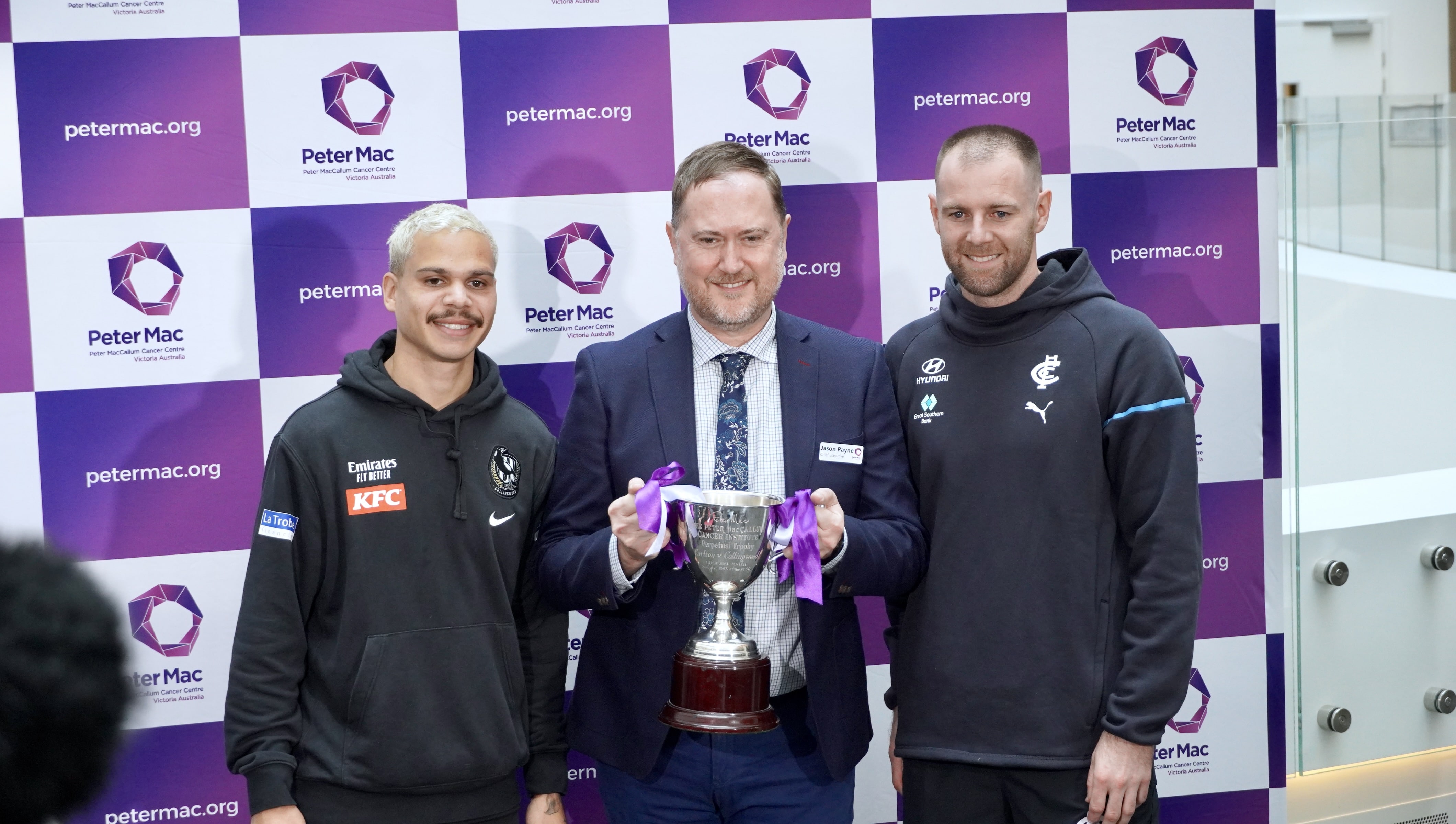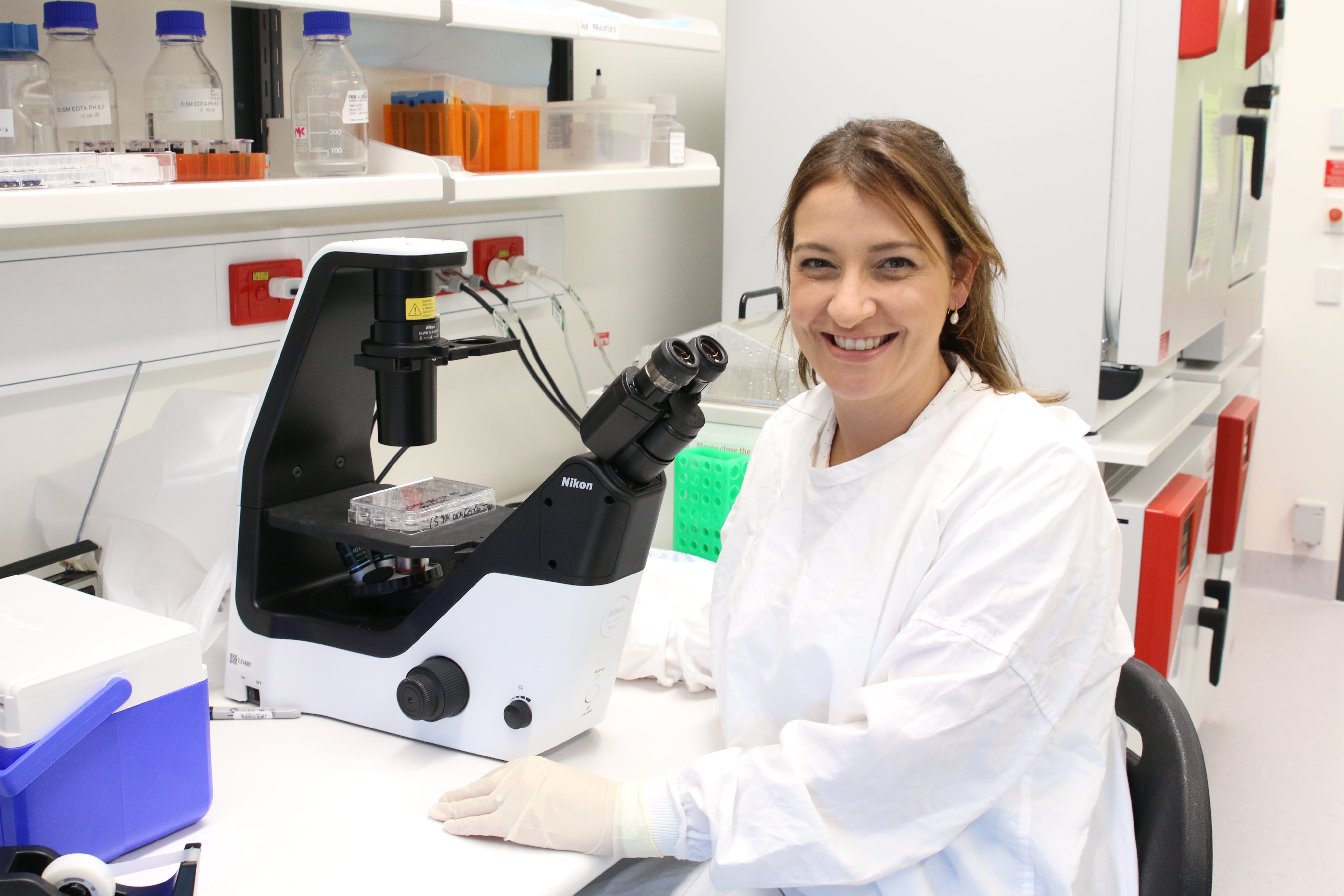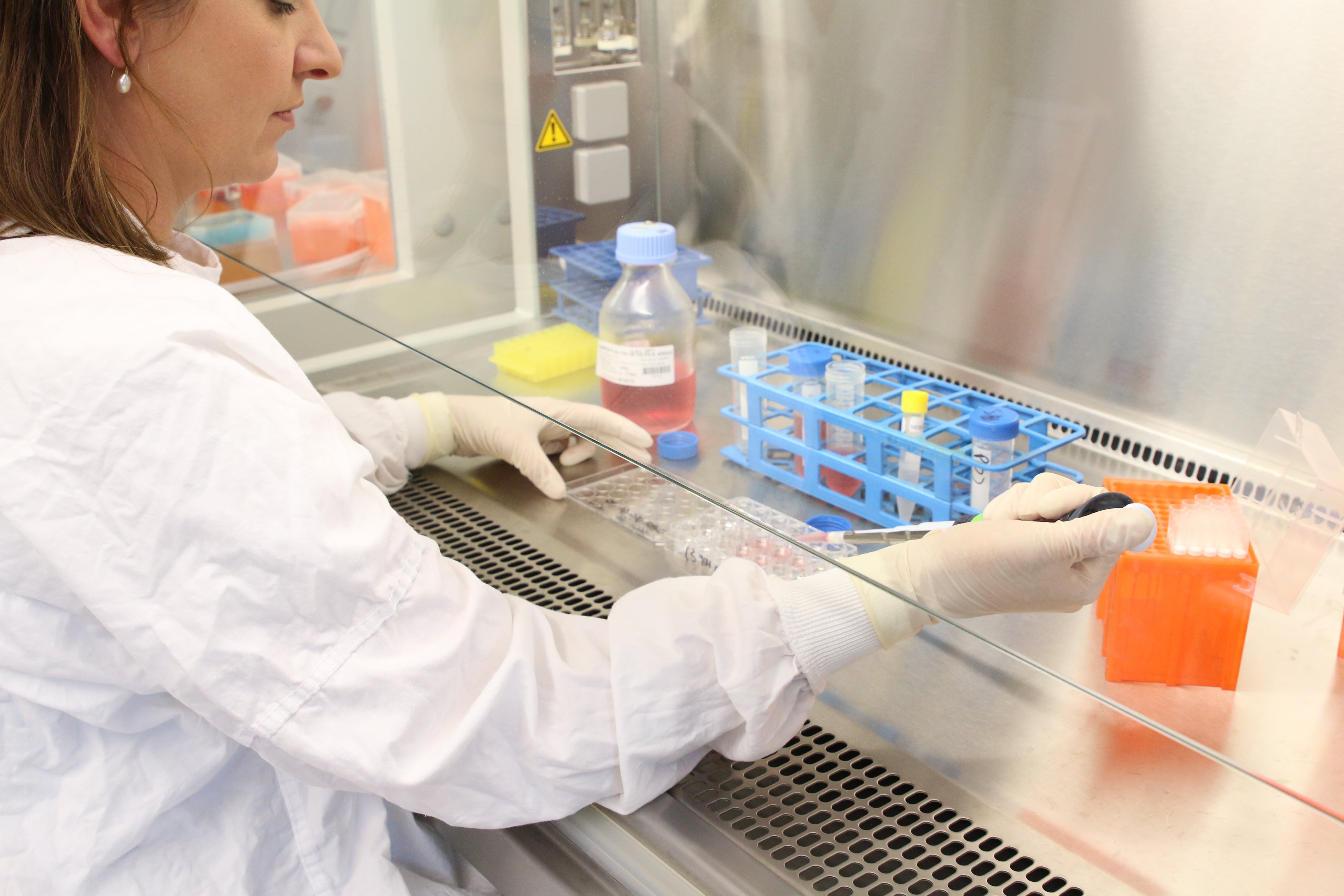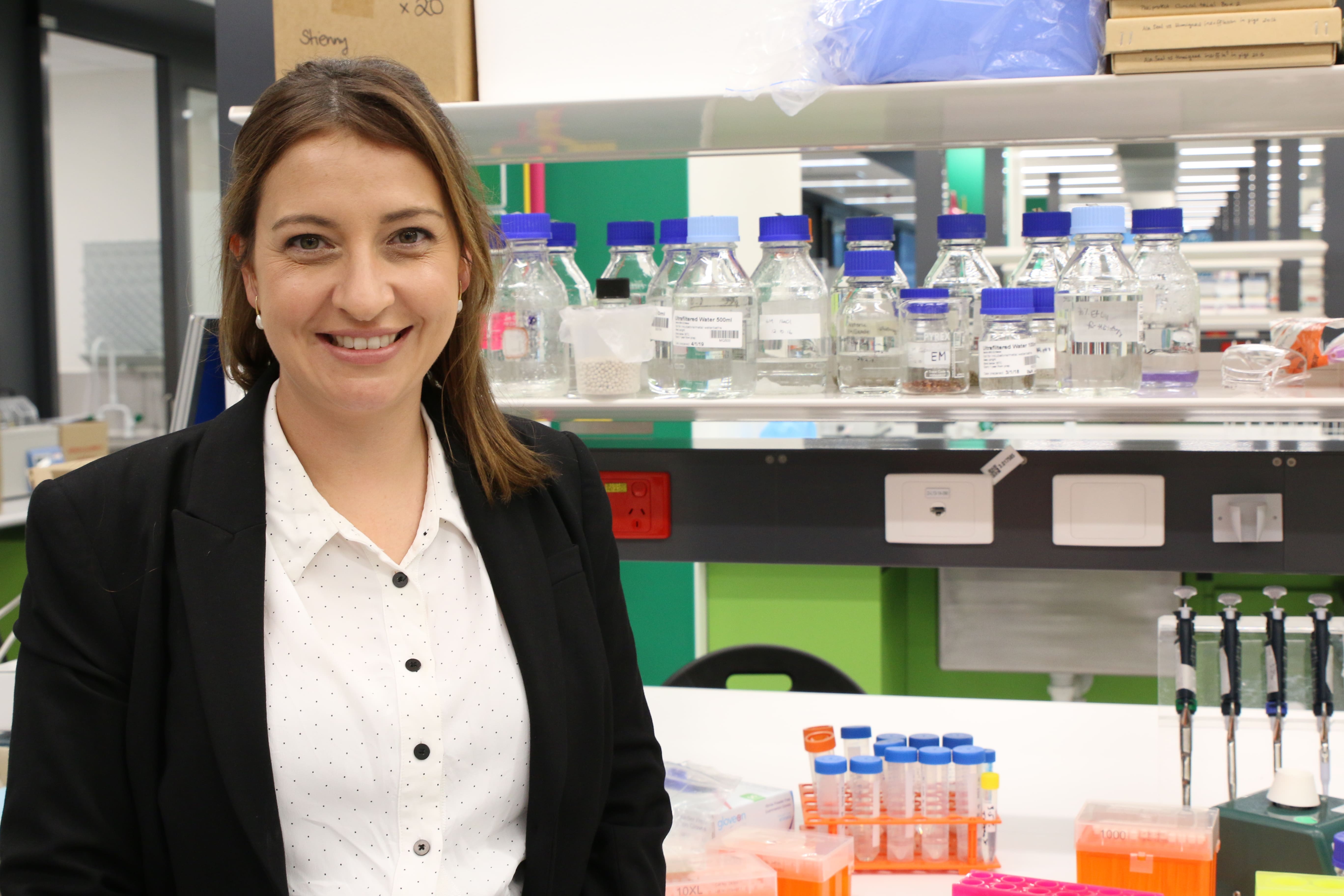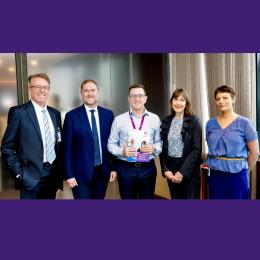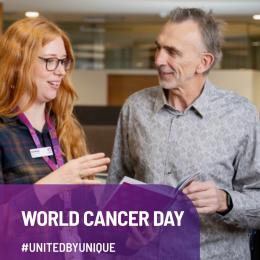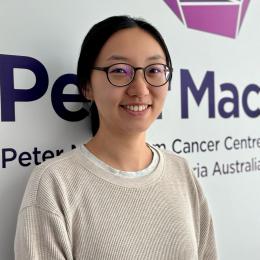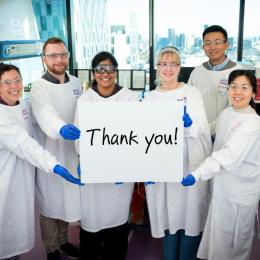Immune responses to drive bowel cancer treatment
4 min read 30 October 2024
Imagine being able to provide bowel cancer patients with individualised treatments – choosing treatments that give the best outcomes and response. Peter Mac researcher Dr Kasmira Wilson and her colleagues are conducting ground-breaking research to help make this a reality. It’s research that could save patients from lifelong impacts of cancer.
A promising research project
Peter Mac researcher Dr Kasmira Wilson and her team have been working on a number of exciting projects. Research that focuses on discovering individualised treatments and life-saving cures for people diagnosed with bowel cancer.
A proportion of patients that have bowel cancer will undergo chemotherapy and radiation therapy before they have surgery. But the response to this treatment varies widely – with some patients responding well, and others showing little response.
This unpredictability in treatment outcomes is precisely what Dr Wilson is determined to change with her research:
“Bowel cancer, in general, can be a curable condition if it's investigated and treated early, but we still have a long way to go in terms of improving the overall survival of patients. And this is where research comes in.
“By finding more personalised strategies, rather than giving every patient the same treatment, we can improve those responses and improve the overall survival, which has been relatively stagnant over the past decade for patients with these cancers.”
Dr Wilson’s research into discovering more personalised strategies for treatment led her to focus in on multiplex immunohistochemistry.
You can help accelerate research like Dr Wilson's with a donation to Peter Mac.
Donate to accelerate cancer research
Studying immune cells to predict treatment response
Multiplex immunohistochemistry is a method that uses special stains to identify and study different types of immune cells in a tumour, showing how they are distributed and how they might interact. And Dr Wilson believes it is key to improving treatments and outcomes for bowel cancer patients:
“I shifted my research to this technique because it gave us important information. It was a promising way to try and predict who would respond to therapy using the immune response." – Dr Kasmira Wilson
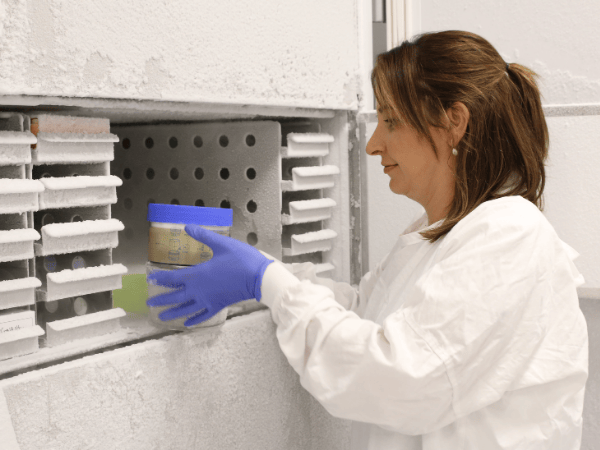
It can be used across all stages of bowel cancer. Dr Wilson says this research has shown incredible promise in improving a patient’s response, and potentially sparing them from debilitating side effects:
“We've been looking at is some new interventions for people specifically with rectal cancer, and that's been introducing immunotherapy into the regime where they have their chemotherapy and their radiation therapy to see whether that might improve the responses of patients to those therapies. And so both of those things aim to get better treatment for the patients.”
Give to ground-breaking research
The impact of this research in real life
Michael was 28 years old when he was diagnosed with stage 3 bowel cancer. He underwent chemotherapy, radiation therapy and surgery to remove his cancer – the standard treatment regimens for bowel cancer.
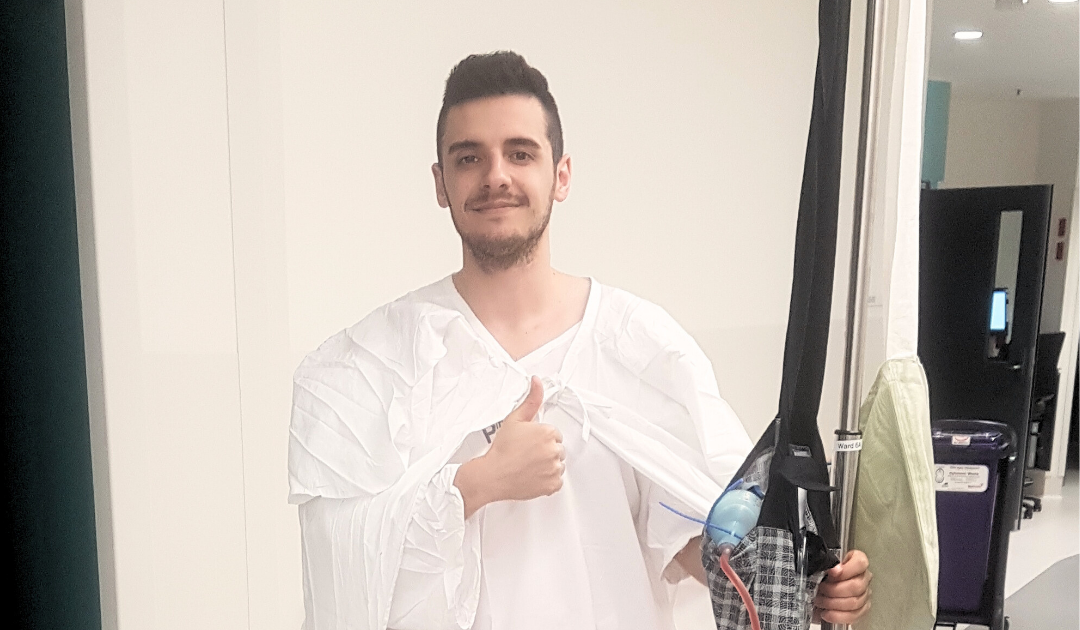
Following his surgery, Michael was left with ongoing pain, infertility and a colostomy bag that he will need for the rest of his life:
“I’ve lost a lot of feeling. I’ve got numb fingers and feet from chemotherapy. Because my prostate was removed, I can’t have kids naturally. I still get a lot of pain in certain areas of my rear where they operated, and the chemotherapy will have long-term effects.
“But it’s all something I accept so I can still be here today.”
But with research like Dr Wilson’s, and your help, there can be kinder, more personalised treatments and life-saving cures.
Donate to advance research and save lives
The research plan for 2025, and beyond
Research is a long journey, and Dr Wilson’s research – like all of the innovative cancer research at Peter Mac – must continue. With projections showing that the incidence of bowel cancer will increase over the next decade, the need to continue research like Dr Wilson’s has never been greater.
“More people will be diagnosed with bowel cancer in the coming decade, highlighting bowel cancer as a major health issue for Australians.
“Peter Mac is a world leader in the research that it does, and supporting these projects really helps us to advance cancer care for our patients. And so any donation for Peter Mac will be going to valuable research that's going to have a positive impact for patients.”
There is no time to lose in discovering kinder, more effective treatments.
The initial results of Dr Wilson’s work are very encouraging. Expanding research like this means more patients can receive individualised treatment sooner.
With support from kind people like you, individualised treatments can be further developed, saving people from the lifelong effects of cancer.
Thank you for your life-saving support
“Every single gift to research is a huge benefit and will have a positive impact for patients.” – Dr Wilson
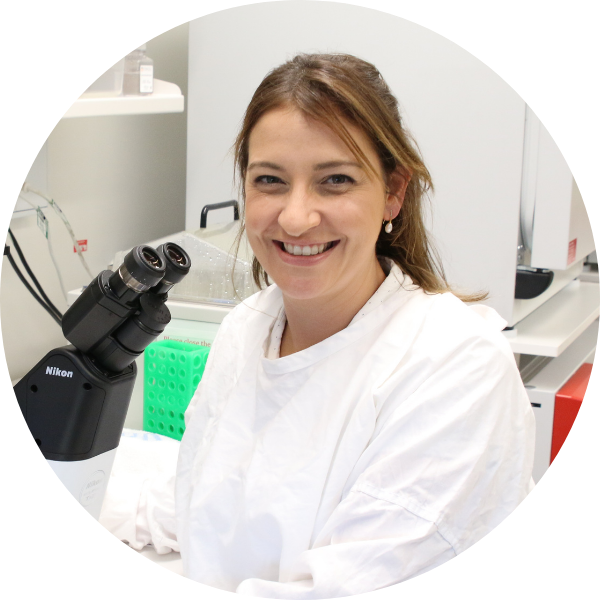
Please donate to Peter Mac this Christmas to accelerate cancer research. Your kindness will give people like Michael the longest-lasting gift of all: the gift of new treatments, better outcomes and ultimately cancer cures.
@Follow us on Instagram (@SupportPeterMac)

